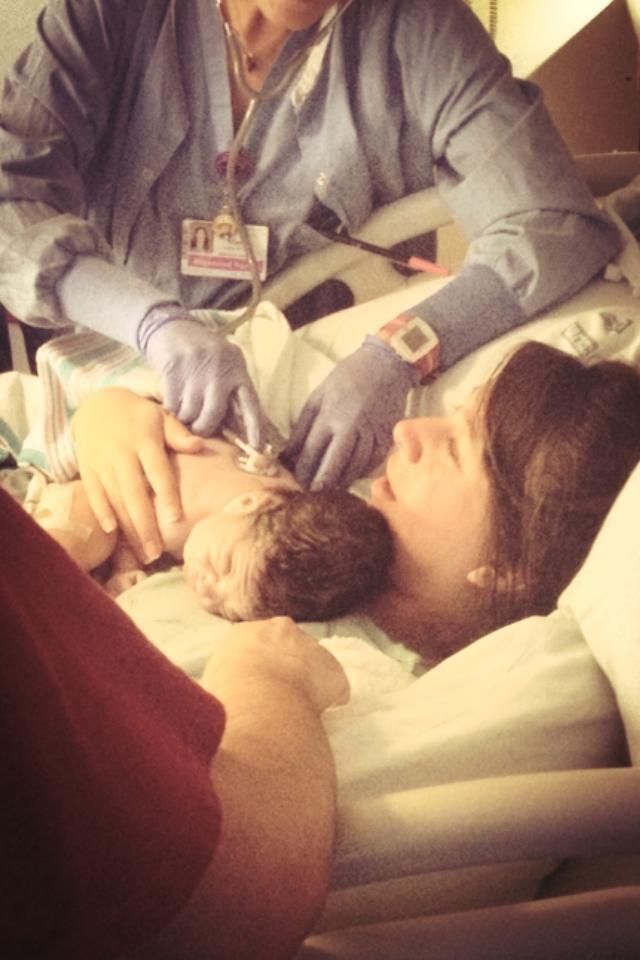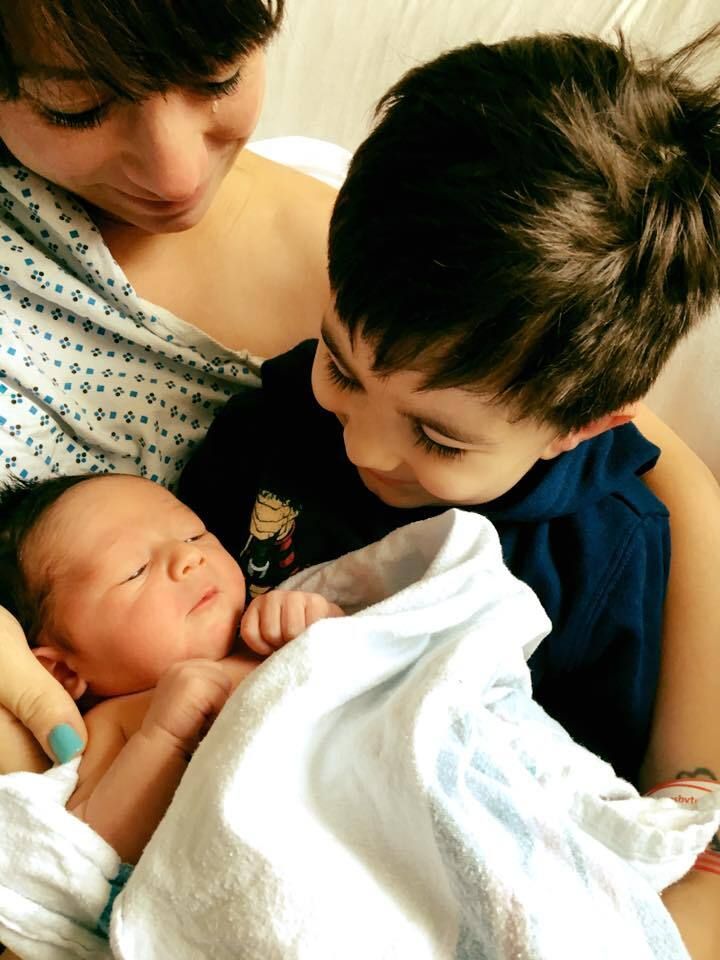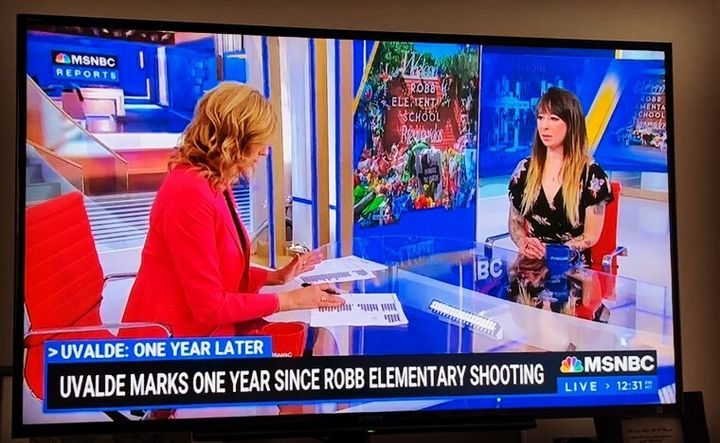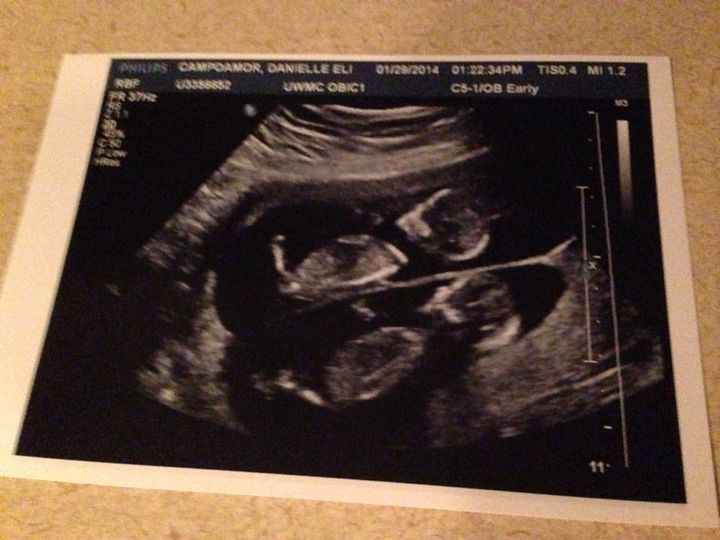News
At 20 Weeks Pregnant, An Ultrasound Revealed Something Unthinkable. What Happened Next Is My Deepest Regret.
I was laying in bed watching reruns of “The Office” when my water broke.
As Michael Scott was burning his foot on a George Foreman grill, I felt what can only be described as a small “pop” in my lower abdomen. Concerned and confused, I stood up, took two steps towards the bathroom in our tiny one-bedroom Seattle apartment and felt a rush of amniotic fluid soak through my sweatpants, pooling beneath my feet on our hardwood floor.
“This is it! Oh my God, this is it!” my then-boyfriend said, visibly unable to contain his excitement as he pee-danced his way toward the front door to grab our carefully packed go-bags.
“Yeah, let me take a shower first,” I responded flatly, paralyzed by excitement, fear and a debilitating wave of grief.
This *is* it, I thought, the reality of my situation assaulting the recesses of my brain like a rogue pinball. It’s time to say hello … and goodbye.
A little over nine months earlier, at a Planned Parenthood tucked away in a nondescript building in South Seattle, an overly kind ultrasound technician calmly informed me that I wasn’t just pregnant — I was pregnant with twins. After accidentally blurting out a string of expletives and requesting the technician count the embryos again … and again … and again … I left the exam room armed with half-a-dozen fuzzy black-and-white pictures of two alien-looking sacs and a full-blown smile.
I was going to be a mom. My boyfriend was going to be a dad. We were going to be parents, twice over.
We purchased two of everything — onesies, sleep sacks and soft toys no newborn has the physical capacity to use but which were necessary nonetheless.
Carelessly, I allowed my mind to craft a picture of what our future would look like as a family of four: my boys snuggled up in a crib/ The beautiful chaos that was sure to be two toddlers exploring every sharp corner and potentially dangerous outlet in our apartment. Anxiety-inducing swim lessons and emotional first-day-of-school drop-offs and teenage mishaps that two born-together brothers would no doubt try to hide from me.
Photo Courtesy Of Danielle Campoamor
My family felt so certain, so meant-to-be — until, at almost 20 weeks’ gestation, another overly kind ultrasound technician gave me a look that shattered that facade of inevitability.
One of the twins ― Twin A, who was given a beautiful name I still, 10 years later, cannot bring myself to say out loud ― no longer had a heartbeat. For reasons no doctor could articulate, my body was hospitable to one fetus and hostile to another.
For the remainder of my pregnancy, I was cursed with carrying both life and death inside of me ― left to hope, beg, plead, and wish that the diminished twin, my futureless baby boy, would not cause the termination of the other.
So when my water broke and I was staring the pains of labor and delivery in the face, I knew I finally had to say goodbye. My future child ceased to exist before he ever had a chance to live, and he was deteriorating inside me … but he was still with me. Bringing his remains into the world meant facing what I had instinctively avoided for nearly 20 weeks.
The tapestry of an impossible future I had selfishly allowed myself to weave would unravel the moment I heard the cry of one baby and the silence of another.
Labor and delivery is as advertised ― painful, exhausting, and fraught with an ungodly amount of bodily fluids. After nearly 24 hours, I pushed my perfect living son from my body and into the world ― his presence sliced through the air of that labor and delivery room with all the pomp and circumstance I have come to expect of my now-9-year-old attention-seeker.
As the nursing staff took my son away to clean him and check his vitals, I was once again instructed to push. All the energy that propelled my son into the universe drained from my body in an instant. There would be no cry at the end of this labor; no warm body to hold to my chest; no “reward” for the physical sacrifice of childbirth, just an emptiness that threatened to swallow me whole.
I closed my eyes, whispered a tender goodbye, and pushed.
What I am told were nearly unidentifiable remains slithered from my body. My physician looked up and, with an equal amount of pity and kindness in her eyes, asked me if I wanted to look at what would have been ― should have been ― my second son.
I had considered the realities of this moment countless times. I thought long and hard about what I wanted and why. I obsessed over the pros and cons. But in that moment, instinctively and without hesitation, I said no and turned away, choosing to focus solely on my newborn son’s hunger cries and his perfect, chubby thighs.
“Are you sure?” my boyfriend asked. I shook my head yes as tears ran down my cheeks, my gaze steadfast on the baby who lived.

Photo Courtesy Of Danielle Campoamor
Both my boyfriend and best friend were in the delivery room when my son made his foray into the world. And both looked at the remains of the twin who died. Died. The finality of it all still feels absurd.
In the years since, I have asked what it — what he — looked like.
“Not human,” my boyfriend has said.
“More like an alien,” my best friend has promised.
“You wouldn’t have known it was a baby,” they both insist.
They love me, so I am convinced they are lying. They saw the way the loss, the birth, and the postpartum months that followed broke me in a thousand different ways. They would never tell me that I should have looked at my son; that I owed him as much; that a good mother — whatever that means — would have decided differently.
They love me, so they don’t judge me the way I judge myself.

Photo Courtesy Of Danielle Campoamor
Five years later, my second child — another son — was born. As I stared at his perfect face, I wondered if he looked like Twin A. Did he have his nonexistent brother’s cheeks? His eyes? His nose? The same tuft of dark brown hair? Was he the boy I had mourned simply reincarnated, somehow smart enough to know that as a new mother I could only handle one baby at a time? Did he see my faults ahead of time and spare me that feeling of ineptitude by simply deteriorating into the ether, only to return again, now healthy and exquisite?
I’ll never know, of course, and it’s a regret I will carry with me for the rest of my life. Whenever I see twins, or hear about twins, or a friend or co-worker or acquaintance gives birth to twins, I think about the cowardice that kept me from looking at my son’s remains — of the fear that made me refuse to honor him by bearing witness to the only form he would ever take, as bloody, diminished and alien-looking as it may have been.
Now, as a journalist and freelance writer, I have covered wars in Ukraine and Israel; school shootings in Uvalde, Highland Park, Covenant and more; disasters in Puerto Rico, Ohio and Syria. I have stared death in the face, bearing witness to irrevocable loss that cannot be adequately described.

Photo Courtesy Of Danielle Campoamor
I have sat with mothers as they shared photos of their deceased children; watched videos of students gunned down with callous abandon and mothers caressing, hugging and kissing their lifeless babies’ bodies; listened to stories of death and destruction and violence on a scale that has kept me up for nights at a time.
And every single time, I silently pay homage to the son I couldn’t bear to honor in the same way. He is with me in the darkness — a reminder that we cannot shield ourselves from the horrors of life, because with them come the things as breathtakingly beautiful as the cries of a newborn baby with immaculate, chubby thighs.
Danielle Campoamor is a former NBC and TODAY reporter and award-winning freelance writer and editor published in The New York Times, Washington Post, TIME, New York Magazine’s The Cut, CNN, MSNBC, Mother Jones, Marie Claire, Vogue, Vanity Fair and more. She covers a wide variety of topics, including reproductive justice and abortion care, gun violence, mental health, gender-based violence, climate change and more. She lives in Brooklyn, NY, with her husband and two feral sons.
Do you have a compelling personal story you’d like to see published on HuffPost? Find out what we’re looking for here and send us a pitch at pitch@huffpost.com.
Read more

